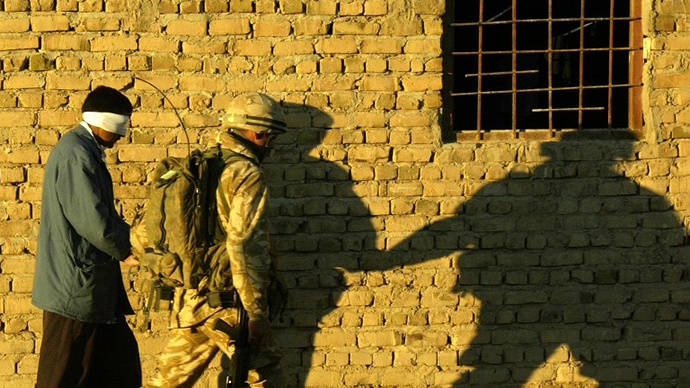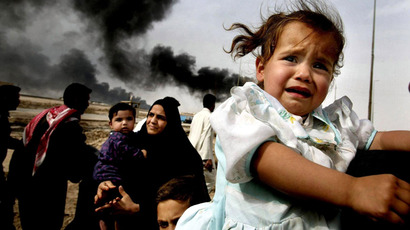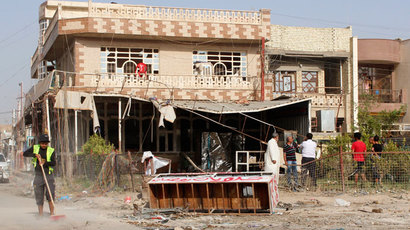‘Baseless rumors’: UK denies soldiers mutilated corpses in Iraq battle

UK army officials have denied claims soldiers mutilated the bodies of insurgents and abused Iraqi detainees in a 2004 battle. Members of the military branded the testimonies of Iraqi witnesses as ‘baseless rumors’ to discredit the US-led Iraq invasion.
A public inquiry into the 2004 ‘Battle of Danny Boy’ in southern
Iraq heard the first statements from British military witnesses
on Monday. UK soldiers are facing accusations that 20 or more
Iraqis were unlawfully killed following the battle and that
detainees in UK custody at nearby camp Abu Naji (CAN) were
abused.
At Monday’s inquiry hearing military officials categorically
denied the accusations, calling them “baseless rumors.”
Colonel Adam Griffith told the London hearing that he had been
presented with no evidence that would indicate any mutilation or
abuse had been carried out by soldiers.
"I did not believe any of our soldiers had mutilated a body
and I did not see at the time, and have not seen since, any
evidence to support this proposition," he told the inquiry.
Griffith confirmed that some of the bodies had broken limbs as
well as gunshot injuries, but stressed these wounds could have
been caused by gunfire.
However, he noted that an order to have the bodies taken back to
CAN was unusual, adding there must have been a good reason for
it.
He went on to suggest that the testimonies from Iraqi witnesses
were the product of their “ignorance as to the traumatic
injuries that can be suffered in combat” and a smear campaign
against the US-led invasion of Iraq in 2003.
‘Systematic cases of abuse’
The Al-Sweady inquiry - named after 19-year-old Hamid Al-Sweady,
who died in the battle – was opened in 2009. It is the second
investigation into the allegations of abuse and mutilation after
the first, carried out by the Royal Military Police, was deemed
‘inadequate’.
The total cost of the ongoing inquiry is around $30 million.
Monday’s hearing was the first time representatives from the UK
military have testified. Previously, only Iraqi witnessed and
experts had taken part in the inquiry.
The Al-Sweady case is not the first inquiry into allegations of
troop brutality in Iraq. In 2003, a public inquiry into the death
of Iraqi hotel worker Baha Mousa was launched. The 26-year-old
died after over 30 hours in custody after being severely beaten
and attacked by British soldiers. The investigation into the
incident ruled the soldiers involved had committed an
“appalling episode of serious gratuitous violence.”
As a result of the ruling the UK Ministry of Defence was obliged
to pay Baha Mousa’s family and nine other men $4.4 million in
compensation. British Defence Secretary Des Browne admitted that
there had been “substantial breaches” of the EU Convention
of Human Rights by the British Army in Iraq.
The UK stands accused of systematic cases of abuse over the five
year period between 2003 and 2008 by the attorneys of 180 Iraqis.
The Ministry of Defence argues that the cases of abuse are
isolated incidents of which senior members of the military were
unaware.














